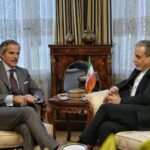The South Korean Ministry of Culture, Sports, and Tourism said that the Suwon Hwaseong Cultural Festival, recently chosen as a Korea Representative Global Festival for 2024-2026, will be held from October 4 to 6 at Suwon Hwaseong in Gyeonggi Province.
The Suwon Hwaseong Cultural Festival, an annual celebration in Suwon, is centered around Suwon Hwaseong, a fortress built by King Jeong-Jo in the late 18th century.
It blends traditional Korean cultural heritage with modern interpretations through performances, interactive events, and exhibitions.
This year’s festival has been elevated to global status, featuring multilingual performances and interactive programs designed to make Korea’s traditional culture more accessible to foreign tourists.
New global programs include Jagunggagyo (a traditional opera with English subtitles), the immersive art performance Hwaryeong, and King’s Dessert, where participants can taste and learn to make the royal desserts enjoyed by King Jeong-Jo.
The ministry also plans to showcase the festival at the Taipei International Travel Fair next month.
In March, the ministry selected three festivals—Incheon Pentaport Music Festival (Performing Arts), Suwon Hwaseong Cultural Festival (Traditional Culture), and Hwacheon Sancheoneo Ice Festival (Tourism Resources)—as global festivals, with plans to develop them into flagship tourism products for international travelers.
By Sun A Lee
suna@hankyung.com















